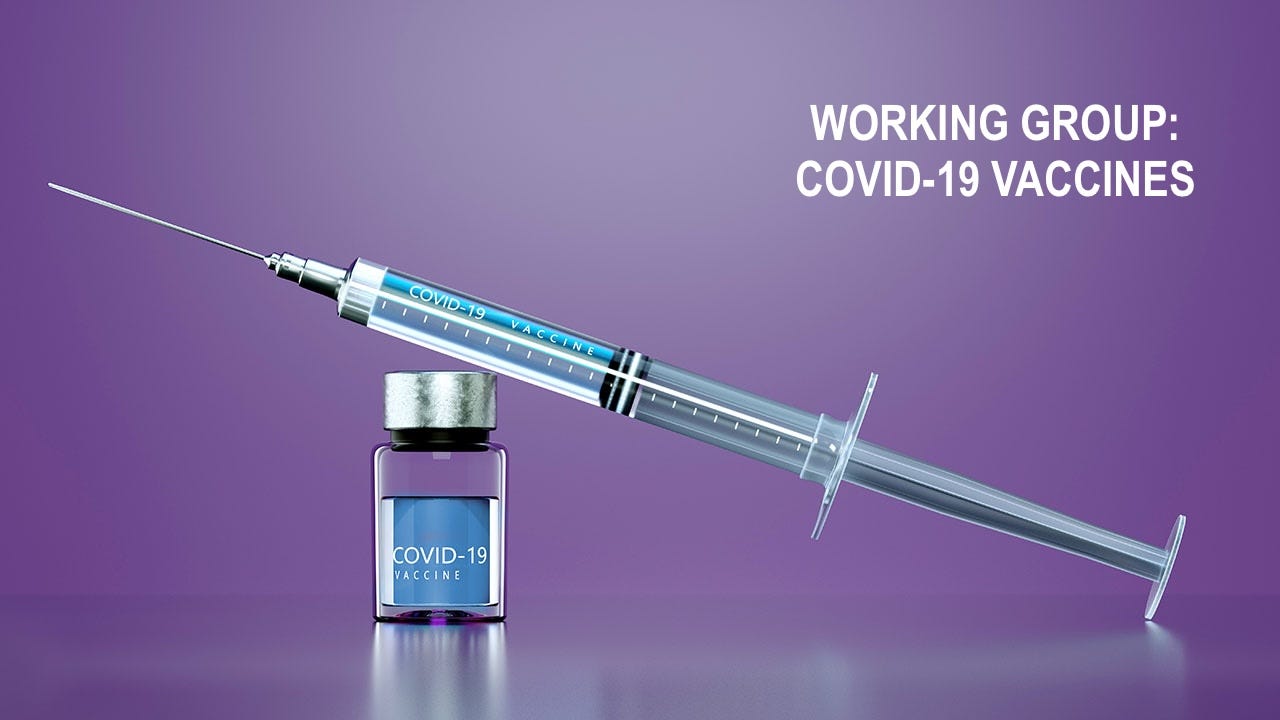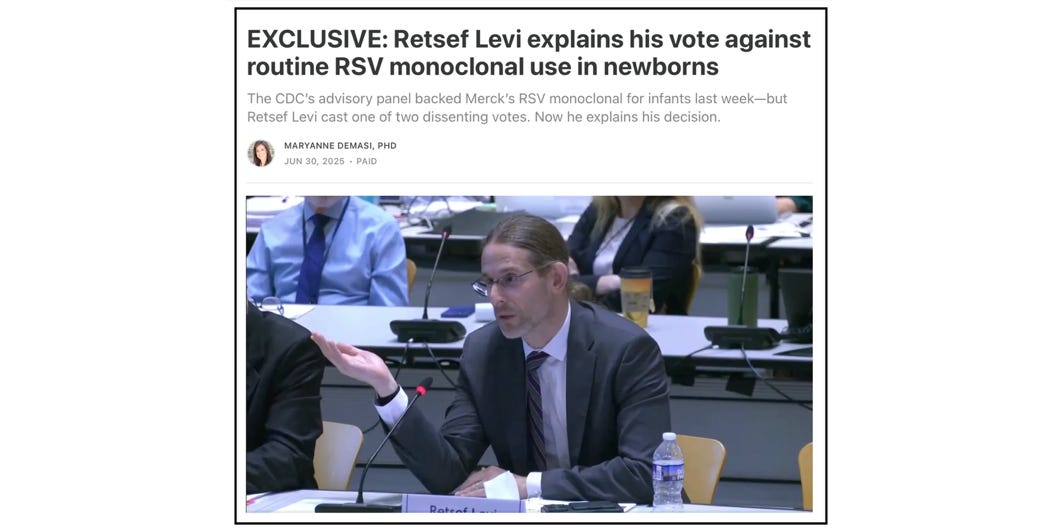BREAKING: ACIP launches sweeping Covid-19 vaccine review under Retsef Levi
Billions of Covid vaccine doses were rolled out on assurances they were safe and effective. Now, ACIP’s new Covid immunisation working group is asking the questions regulators never did.
MIT professor Retsef Levi has been an outspoken voice on the CDC’s vaccine advisory committee (ACIP) since its dramatic overhaul in June.
He has pressed agency officials on uncomfortable questions, challenging the narrow surveillance windows used to track harms and insisting that delayed effects could not simply be ruled out.
He also raised concerns about the safety of RSV monoclonal antibodies after clinical trials showed a clear imbalance in infant deaths.
Now, Levi is no longer just a dissenter.
He has been appointed chair of the CDC’s new Covid-19 vaccine working group, and with today’s release of its Terms of Reference, the scale of his task has come into sharp focus.
Under the guidance of Levi and his colleagues, the ACIP working group now has a mandate unlike anything the committee has ever undertaken.
For the first time, federal advisers will investigate the unresolved issues that have dogged the vaccines since their rushed rollout in late 2020.



